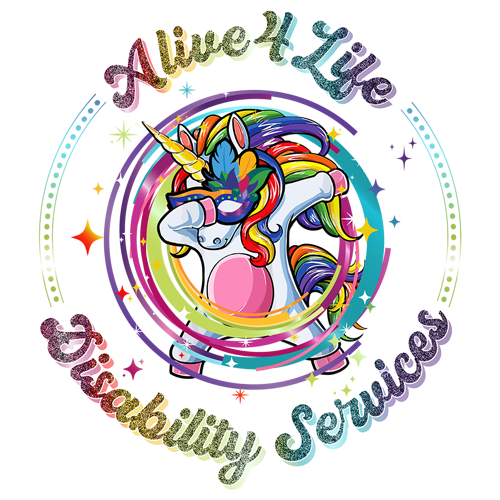Want to know how you can access the NDIS? We can help you understand the eligibility criteria and identify the types of support covered for your condition. Alive4Life is a registered NDIS provider that offers individualised disability services in Campbelltown and Wollongong to people with psychosocial disabilities.

Mental health plays a significant role in a person's quality of life. Just like physical health, one's mental health should also be taken care of seriously. People with mental health conditions often face a variety of challenges in their lives, from managing daily tasks to being active in the community. Fortunately, there are many resources available to help those with mental health conditions cope and find support.
In this blog, we will explore the specifics of how people with psychosocial disability and mental health conditions can access the National Disability Insurance Scheme (NDIS), what they need to apply, and how they can receive their much-needed mental health services and support from the mental health sector.
Does NDIS cover mental illness?
The National Disability Insurance Scheme (NDIS) is designed to enable people with disabilities to increase their autonomy and full engagement in the community, at work, and generally in their daily lives.
As per the NDIS guidelines, an NDIS participant with a mental illness may be eligible for NDIS support if their mental health conditions significantly impact their daily activities, social participation, or employment opportunities. Hence, the NDIS provides support and funding for a range of services, including therapy and counseling, medications, rehabilitation, and community participation activities.
How does NDIS help with mental health?
The NDIS provides support services aimed at assisting individuals with mental health issues and psychosocial disability to perform everyday tasks with ease. These services are designed to facilitate community participation, social life, studies, and work. They also help in regaining lost skills, boosting confidence, and settling back into regular daily routines.
Can you get NDIS for depression?
Not everyone who has a mental health condition such as a depression is eligible for the NDIS unless it has caused the person to develop a psychosocial disability which is most often severe, long-lasting, and which could affect how a person can recover from his/her condition. Therefore, if the person was able to present an evidence based on the impact of the mental health condition, then that person can access the National Disability Insurance Scheme.
What is psychosocial disability NDIS?
Psychosocial disability refers to a type of disability that results when a person has a mental health condition. Psychosocial disability is not always present in people with mental health conditions, but when it is, it can be severe, persistent, and have an impact on a person's ability to rehabilitate. Thus, people with disabilities brought on by mental illness may be eligible for the NDIS.
What falls under psychosocial disability?
Psychosocial disability results when a person with a mental health condition participates socially in an environment that creates obstacles to their equality with others. Having this disability, the person may be restricted from doing the following:
- be in particular environments
- concentrate
- have enough energy to finish activities
- handle time constraints and multiple responsibilities
- socialise with others
- comprehend constructive criticism
- manage stress
Does PTSD qualify for NDIS?
As mentioned, the NDIS may be available to people with disabilities brought on by mental illness. This means that if a person has post traumatic stress disorder (PTSD) that is caused by a psychosocial disability that will probably follow him/her for the rest of his/her life and has a significant impact on their capacity to handle everyday tasks and activities, then that person is qualified for the NDIS.
However, the National Disability Insurance Agency (NDIA) is only interested in the help needed as a result of the condition and how it affects the person's day-to-day functioning, not the PTSD diagnosis itself.
What mental health conditions are covered by NDIS?
The NDIS only provides access to an eligible individual with psychosocial disability as a result of a mental health condition.
If you have a mental health condition, you may qualify for an NDIS only if you provide evidence that:
- your mental health condition has greatly affected your daily living
- the struggles you faced as a result of your mental health conditions means that you would require an NDIS support in your entire life
- the difficulties you experience as a result of your mental health condition has significantly decreased your ability to perform your daily tasks. These may include moving around, conversing, interacting with others, learning, and performing self-care or self-management duties
If you think you are eligible for the NDIS, you can obtain an NDIS Access Request Form (ARF) and a Supporting Evidence Form (SEF), and then work with your general practitioner, allied health providers, and other specialists to gather the necessary data you need to successfully access the NDIS.
What type of supports are funded by the NDIS?

The NDIS funds various types of supports and services that are 'reasonable and necessary' for NDIS participants to help achieve their goals in life. These supports are classified into 15 categories based on their intended use, which are:
- Assistance with Daily Life
- Transport
- Consumables
- Assistance with Social & Community Participation
- Assistive Technology
- Home Modifications
- Coordination of Supports
- Improved Living Arrangements
- Increased Social and Community Participation
- Finding and Keeping a Job
- Improved Relationships
- Improved Health and Wellbeing
- Improved Learning
- Improved Life Choices
- Improved Daily Living
The NDIS Pricing Arrangements and Support Catalogue include an array of supportive measures and services that fall under each support category.
Does Bipolar qualify for NDIS?
Bipolar disorder can only qualify for the NDIS if it meets the NDIS eligibility criteria. The NDIS provides support for people with permanent and significant disabilities that affect how they live and do tasks daily to achieve their goals. However, since each person's condition is different, the eligibility for NDIS support is determined based on a careful assessment of an individual's needs and circumstances. Hence, it is best to work with a healthcare professional to help assess if your condition is eligible for the NDIS.
Takeaway

Psychosocial disability is a type of psychological disability resulting from a mental health condition. A person who has it experiences challenges with communication, social inclusion, employment, and maintaining good health. Fortunately, there are programs and services available to help individuals with psychosocial disability receive the treatment and care that they deserve.
As a trusted registered NDIS service provider in Campbelltown and Wollongong, we understand the complex challenges of having a psychosocial disability. That's why at Alive4Life, we strive to make sure that all individuals who use our services are able to access the support they need with ease.
Through the help of the NDIS, any of our clients with a psychosocial disability will be provided with tailored supports focused on increasing their independence, involvement in the community, and social and economic participation — all so they can live a life that's as fulfilling and rewarding as possible.


About Alive4Life
Alive4Life Disability Services provides support and services to enhance the quality of life of NDIS participants and their families across Campbelltown and Wollongong.







